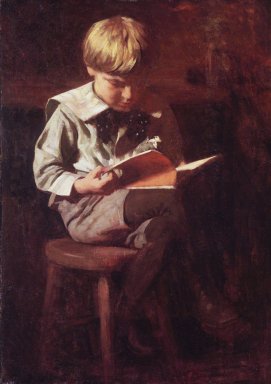【2014 Archives】
Slanderous Correspondence; Imitations
Ask The Paris Review
 I take great and perverse joy in reading insulting, inflammatory, and slanderous correspondence between authors, publishers, and celebrities. Could you recommend some particularly bilious rivalries?
I take great and perverse joy in reading insulting, inflammatory, and slanderous correspondence between authors, publishers, and celebrities. Could you recommend some particularly bilious rivalries?
As Mr. Wilson so justly proclaims in the beginning of “The Strange Case of Pushkin and Nabokov,” we are indeed old friends. I fully share “the warm affection sometimes chilled by exasperation” that he says he feels for me. In the 1940s, during my first decade in America, he was most kind to me in various matters, not necessarily pertaining to his profession. I have always been grateful to him for the tact he showed in refraining from reviewing any of my novels. We have had many exhilarating talks, have exchanged many frank letters. A patient confidant of his long and hopeless infatuation with the Russian language, I have always done my best to explain to him his mistakes of pronunciation, grammar, and interpretation. As late as 1957, at one of our last meetings, we both realized with amused dismay that despite my frequent comments on Russian prosody, he still could not scan Russian verse. Upon being challenged to read Eugene Oneginaloud, he started to do this with great gusto, garbling every second word and turning Pushkin’s iambic line into a kind of spastic anapaest with a lot of jaw-twisting haws and rather endearing little barks that utterly jumbled the rhythm and soon had us both in stitches.
So begins the famous response, by Vladimir Nabokov, to a negative review by Edmund Wilson in The New York Review of Books. The book: Nabokov’s translation of Eugene Onegin. A fun game to play: Exactly where does Nabokov start to show his teeth? Is it “the tact he showed in refraining from reviewing any of my novels”? Or “not necessarily pertaining to his profession”? Or even that “justly” in sentence one?
Six years later, when Norman Mailer was attacked by Gore Vidal in that same magazine, Mailer took his case to the masses—on The Dick Cavett Show—with less sinuous results. The lesson, most publishers will tell you, is never respond. But it’s awfully good TV.
I am taking a beginning poetry class and am expected to write imitations of poets on the class list. What should I be careful to do or not do? What should I pay attention to in an imitation?
To get the most out of the exercise, try to make the meter sound exactly like the meter of the poem you’re imitating. And make sure the teacher checks your work. The meter will look and sound right to you—and if you are a beginner, it will almost certainly be wrong. (You will say your words out loud in your head as if they marched along ka-thunk, ka-thunk, ka-thunk, when in fact they will go baah-duh-dee, buh-dee-doo.) Don’t get hung up on matching the vocabulary of the old poems. You won’t get it right, and it will sound fake. Use words that are more or less natural to you.
And have fun!
Some people say there are books you have to read at a certain stage of your life. I’m nineteen—are there any books I should read before I turn twenty-one?
Thanks,
Max Coleman
It’s true of most books, I think, that you have to read them at the right stage. The trouble is, we all enter these stages at different times. By the time I was twenty-one, some fire in my brain had gone out. Since then, I’ve never gone back to my first novelist-hero, Dostoevsky, or to another favorite, Gabriel Garcia-Marquez. Maybe you, too, want to read them now. It is a very good time to read Susan Sontag’s first book of criticism, Against Interpretation(and to follow up on her recommendations). Other books that spring to mind: Robert Musil’s Young Törless, André Gide’s Counterfeiters, and Roth’s Portnoy’s Complaint. I’d say the Slaughterhouse-Fivetrain is probably leaving the station, and this may be the time to read Sylvia Plath and Dylan Thomas, if you haven’t already, but also to start reading harder stuff, like Hart Crane or John Ashbery. In general, it is a good time to memorize poetry. Right now your memory has the muscles, and you will always have the poems.
Have a question for the editors of The Paris Review? E-mail us.
Search
Categories
Latest Posts
How to Squeeze the Most Out of Your iPhone's Battery
2025-06-26 05:18'Stranger Things' Season 3 moment gets meme'd into sweet oblivion
2025-06-26 04:35Popular Posts
Amazon Prime Grubhub deal: Save $10 off orders of $20 or more
2025-06-26 05:22'Friends' to leave Netflix, head to HBO Max streaming service
2025-06-26 05:21The Best Gaming Concept Art of 2016
2025-06-26 02:55Featured Posts
Astronomers saw one galaxy impale another. The damage was an eye
2025-06-26 04:27Zoom lets a website turn on your Mac's camera without permission
2025-06-26 04:14Viking bones and DNA will decay quickly as Greenland thaws
2025-06-26 04:09NYT Strands hints, answers for May 18
2025-06-26 03:01Popular Articles
Episode 4: The Wave of the Future
2025-06-26 05:12You'll soon be able to ask Alexa for medical advice in the UK
2025-06-26 04:44You'll soon be able to ask Alexa for medical advice in the UK
2025-06-26 03:39Ireland fines TikTok $600 million for sharing user data with China
2025-06-26 02:56Newsletter
Subscribe to our newsletter for the latest updates.
Comments (648)
Progress Information Network
NYT mini crossword answers for May 12, 2025
2025-06-26 05:25Unique Information Network
Climate change means warped railroad tracks
2025-06-26 05:19Belief Information Network
Twitter bans 'dehumanizing language' aimed at religious groups
2025-06-26 04:42Fresh Information Network
The 9 most cringeworthy brand fails of 2016
2025-06-26 03:13Mystery Information Network
No Time for a Negative Peace
2025-06-26 03:08